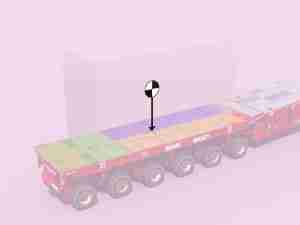INFORM (Aachen, Germany and Atlanta, USA), a leading provider of AI-based optimization software that facilitates improved decision making, processes and resource management, announced the successful completion of an ambitious network optimization project on behalf of Toyota Logistics Services (TLS, Plano, Texas), the finished vehicle logistics provider for Toyota North America. TLS sought to further advance its mission of operational excellence and turned to INFORM to address today’s increased market and operational complexities including various contract conditions (i.e., carriers’ rates, capacity constraints, minimum/maximum viable volumes, etc.), while gaining the tools needed to better evaluate and manage its large volume of data and criteria.
INFORM’s network planning optimization solution for TLS includes a user interface which eliminates the need for users to have programming skills, enabling TLS to quickly gain the solution’s benefits without a lengthy learning curve. The solution provides intelligent, strategic and wholistic planning for the organization’s entire outbound logistics network. It enables information relating to locations, logistics services providers (e.g., freight forwarders) and partners (i.e., rail and truck carriers) to be recorded with the data entered into the solution for improved network stability and service quality. Using the INFORM network planning tool, TLS is able to benefit from optimized routes and modes of transportation determined in conjunction with transport volumes and with consideration to various restrictions and business rules.

INFORM’s optimization solution enables numerous scenarios to be run based on various criteria. The network planning strategy process began with a baseline scenario, which evaluated TLS’ existing network and bid rates, and then created a scenario focused on pure cost optimization and a limited set of restrictions, less weight on transit times, and no limit on potential changes. This then led to the creation of several competing business scenarios incorporating business requirements and restrictions along with information such as costs, Service Level Agreements, and other factors like emissions. Next, various business rules were applied, including minimum/maximum volume, number of legs and distance between origin and destination, lead times, and volume of business being allocated to individual carriers. After this process of scenario building and discovery was completed, TLS could achieve the optimum decision making.
As a result of its network optimization project and the related optimization process, TLS has been able to derive many important benefits. It has realized a 3% cost reduction annually; an important accomplishment given that TLS has seen its costs increase annually by 2%, which computes to a 5% cost avoidance. TLS is also now able to check on the accuracy of its assumptions and compare them to the actual number of vehicles it is shipping month to month. Overall, TLS can now interpret data and arrive at optimal decisions as to its best carrier partners based on their performance and related costs. TLS can issue RFPs that give them real world competitive bid information, since the organization can now ask its partners to provide additional data as the INFORM network planning optimization tool is able to handle a very high volume of data and calculations with relative ease. Even prior to the process beginning, TLS had maintained a very high quality of data which is required for the optimization process to work.
Other key benefits derived from its network optimization project include the ability to better address their sustainability goals. TLS recognizes that rail has lower CO2 emissions than trucks and therefore it is striving to introduce more rail ramps to somewhat reduce truck miles. TLS is reviewing truck miles per unit and considering a ratio of rail to truck to determine carbon footprints, as well as factor in whether a carrier has a CO2-reduced fleet. The organization is also able to promote greater cost competitiveness between rail and truck carriers.
Due to the success of its network optimization project, TLS plans to run the optimization process every five years.








